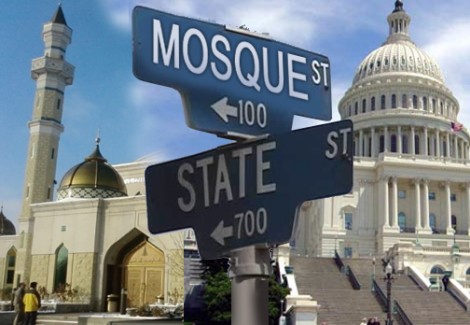
The Muslim Times has been promoting Secularism since its inception five years ago. For our collection of articles to promote secularism in every country of the world, please click here
Source: Duluth News Tribune

M. Imran Hayee is a professor of electrical engineering at the University of Minnesota Duluth. He belongs to the Ahmadiyya Muslim Community of USA and is a regular contributor to the News Tribune Opinion page.
On April 6, an Arab Muslim student from the University of California, Berkeley, Khairuldeen Makhzoomi, was removed from a flight when he alarmed a fellow passenger by speaking Arabic on his phone. The fellow passenger, who knew some Arabic, suspected he used the Arabic word “shaheed,” which translates to “martyr.” Her suspicion cost Makhzoomi his flight.
Two weeks after this incident, I had a chance to fly. After boarding, I called my wife. This was a routine phone call, but I became cautious as soon as I hung up. I had spoken to my wife in Urdu, which could easily be confused with Arabic. With my beard and Middle Eastern looks, my reservations grew rather quickly.
To avoid a potential Makhzoomi-like episode, I immediately thought of doing something to make myself appear more American than Muslim. I had recently seen an article about America’s Founding Fathers by Craig Considine from Rice University. I quickly Googled it on my phone and started reading it visibly. The first sentence read, “Although they are typically seen to represent overwhelming opposites, the Prophet Muhammad and America’s founding fathers shared many common characteristics and beliefs.” Without much thinking, I finished reading the first paragraph, which summarized how historical documents show that Prophet Muhammad and America’s Founding Fathers held astonishingly “similar views” on “issues pertaining to equal rights and religious liberty.” At that point I suddenly realized the name of Prophet Muhammad appeared twice in the first paragraph. My effort to prove myself more American than Muslim became counterproductive.
I did not give up. To undo the effect of mixing up Prophet Muhammad with America’s Founding Fathers, I thought of reading about Jesus. As the Quran speaks highly about Jesus and Mother Mary, I opened the Quran app on my phone and started reading, starting with, “O Mary, Allah has chosen thee and purified thee, and chosen thee above the women of all peoples.” I thought it would do the trick. I continued reading a few more verses in which God gives Mary the glad tidings of the miraculous birth of her son, Jesus, who would be “honored in this world and in the next.” As soon as I finished reading this verse, I realized my Quran app was showing Arabic text in parallel with its English translation. My heart sank again; another attempt to emerge as more American than Muslim failed.
Suggested Reading
Shariah and Constitution: A Personal Journey
Categories: America, Arabic, Islamophobia, Languages, Secularism, Separation of Church and State, The Muslim Times, West
